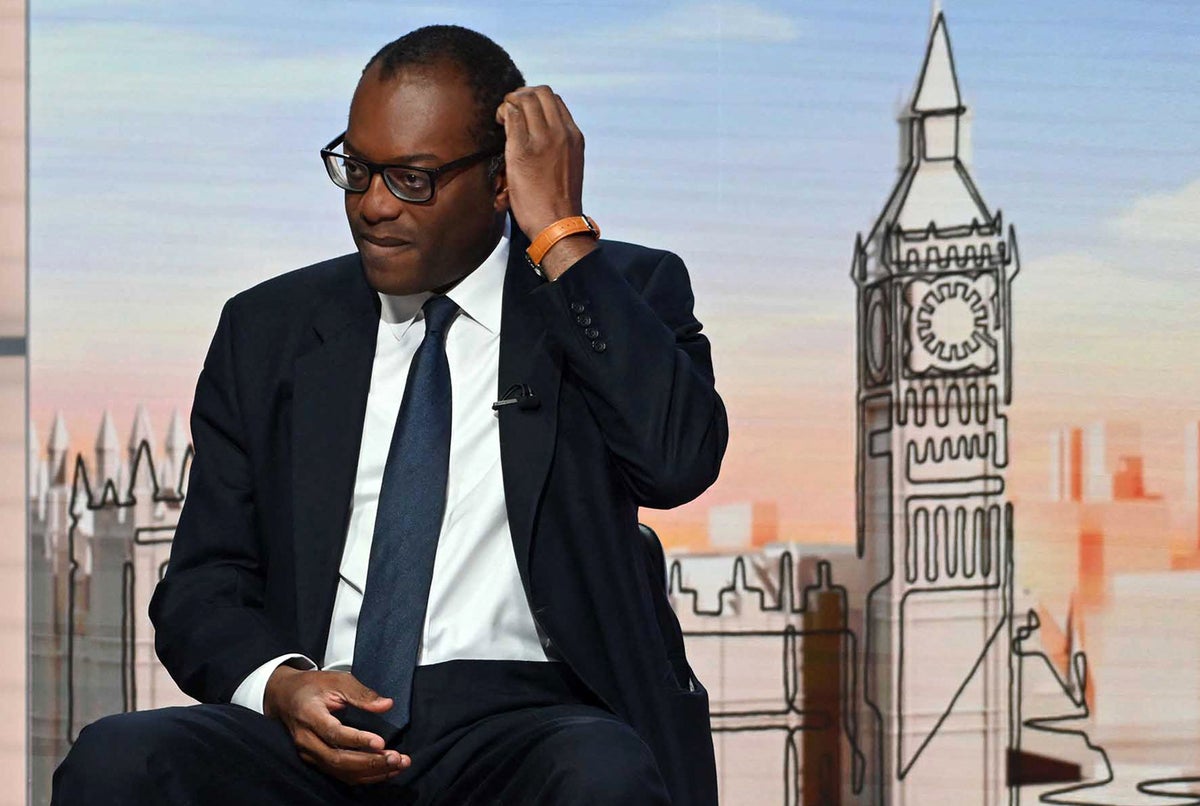
The pound has fallen against currencies around the world following the chancellor’s mini-Budget on Friday, as traders rush to sell off sterling.
Sterling fell to a historic low against the dollar on Monday morning but that is not the only currency that it is fairing badly against.
The pound fell against the Albanian Lek, the Lebanese pound, and the Malaysian Ringgit, among many others, when the Asian markets opened on Monday.
Currency traders were reacting to news from chancellor Kwasi Kwarteng that the government would increase borrowing and cut taxes. The increased level of borrowing makes it riskier to hold sterling and so traders were keen to sell it off.
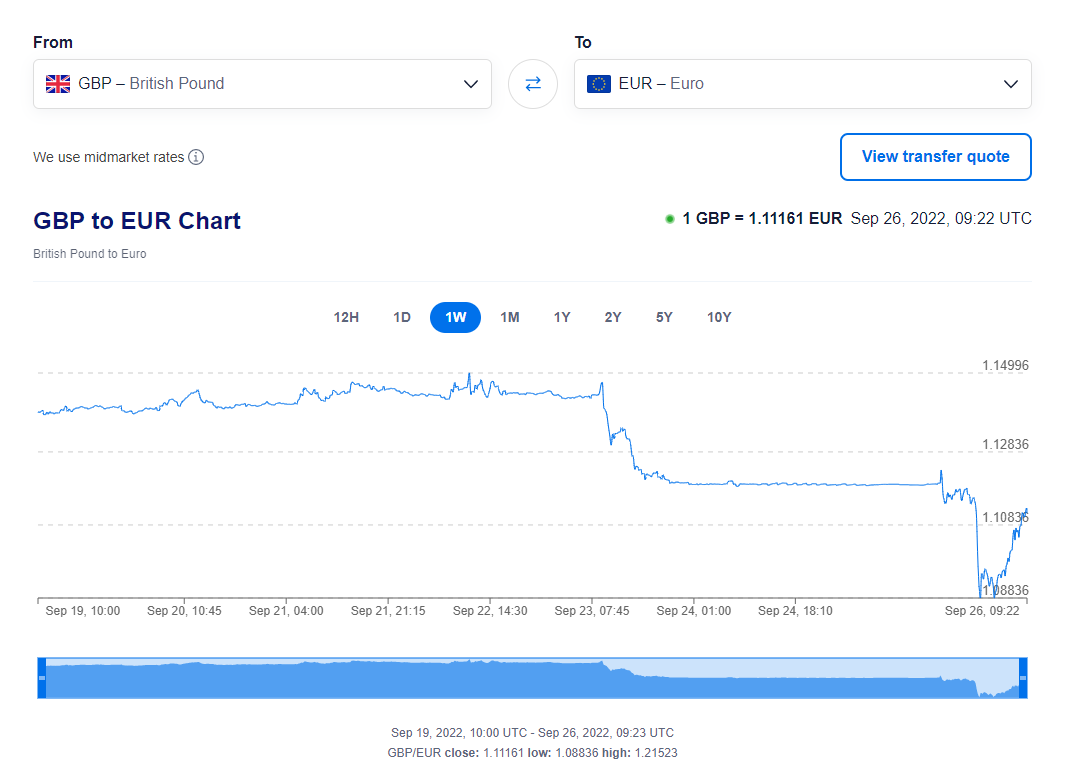
The pound has rallied slightly since the early morning crash and it has now clawed back some ground against the dollar to around $1.08 this trend has been repeated against other currencies.
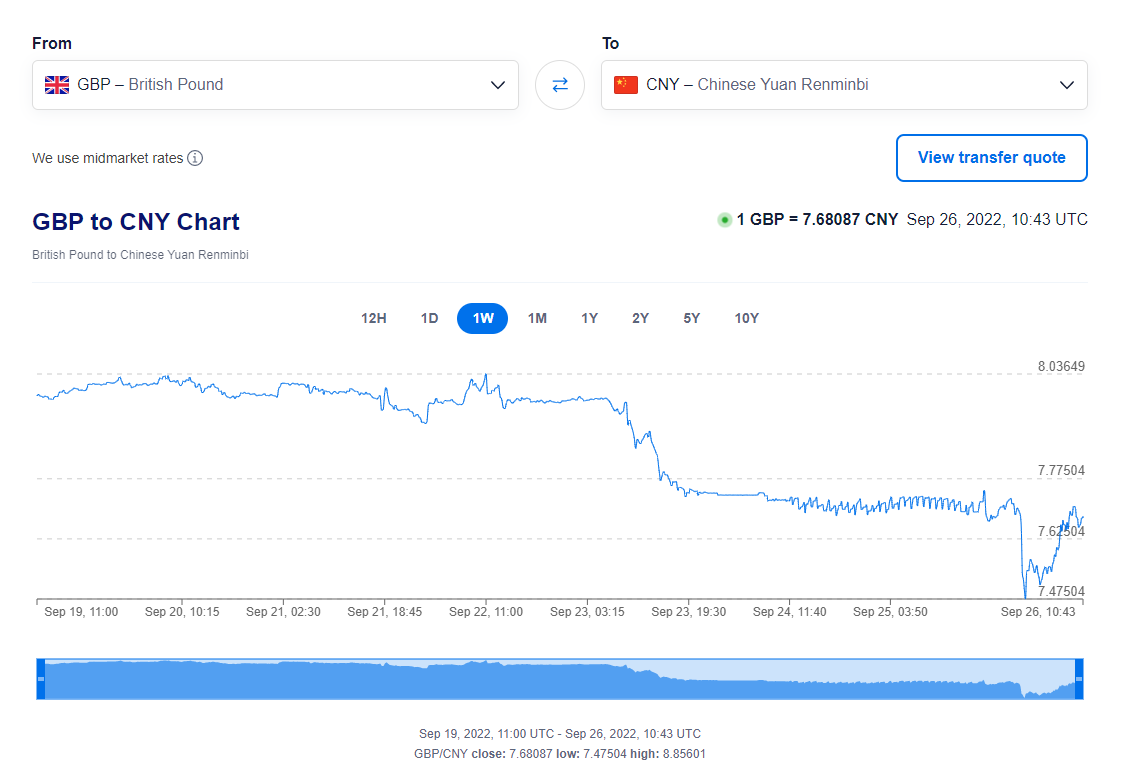
The pound fell to €1.09 against the euro in the early hours of Monday morning, but is now at around €1.12.
Sterling also fell against the Chinese Renminbi to ¥7.47, this was a further fall after a dip last Friday. It has now risen back to around ¥7.75
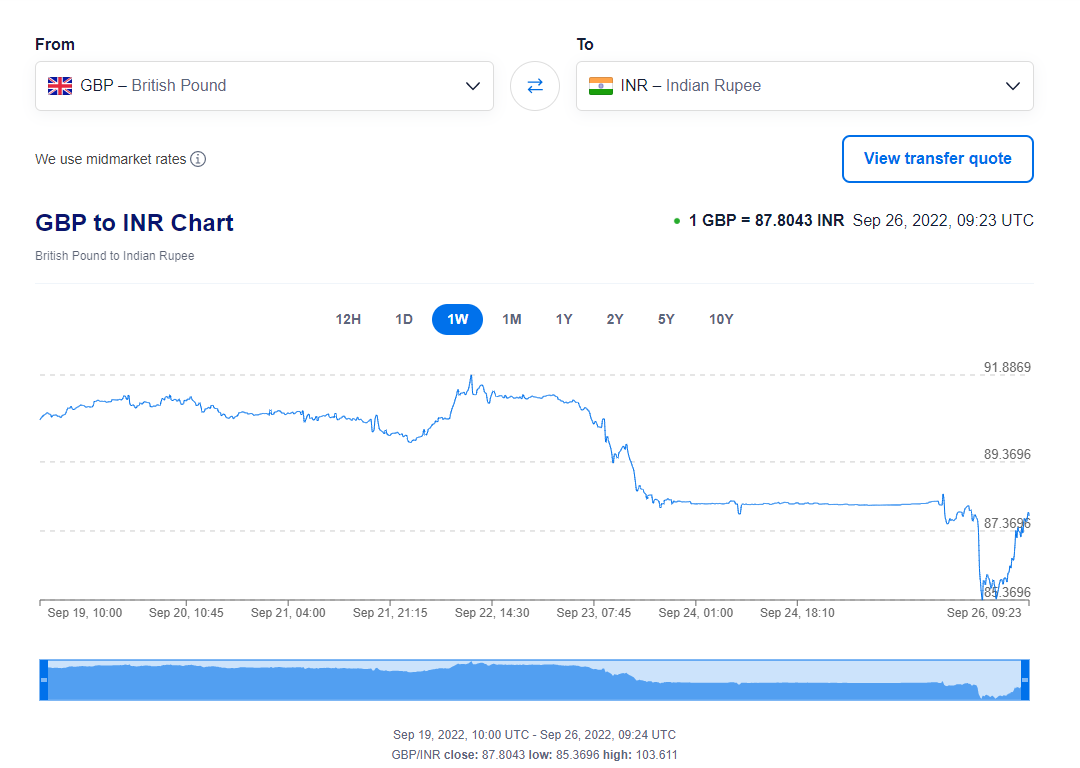
Joshua Raymond, director at financial brokerage XTB, said that Mr Kwarteng’s comments on the politics shows over the weekend have spooked the markets.
“Comments from the chancellor over the weekend that these tax cuts are just the start have raised suspicion about the state of UK finances in the medium term. To emphasise this, the GBP is falling not just against the dollar, but also the euro and yen,” he said.
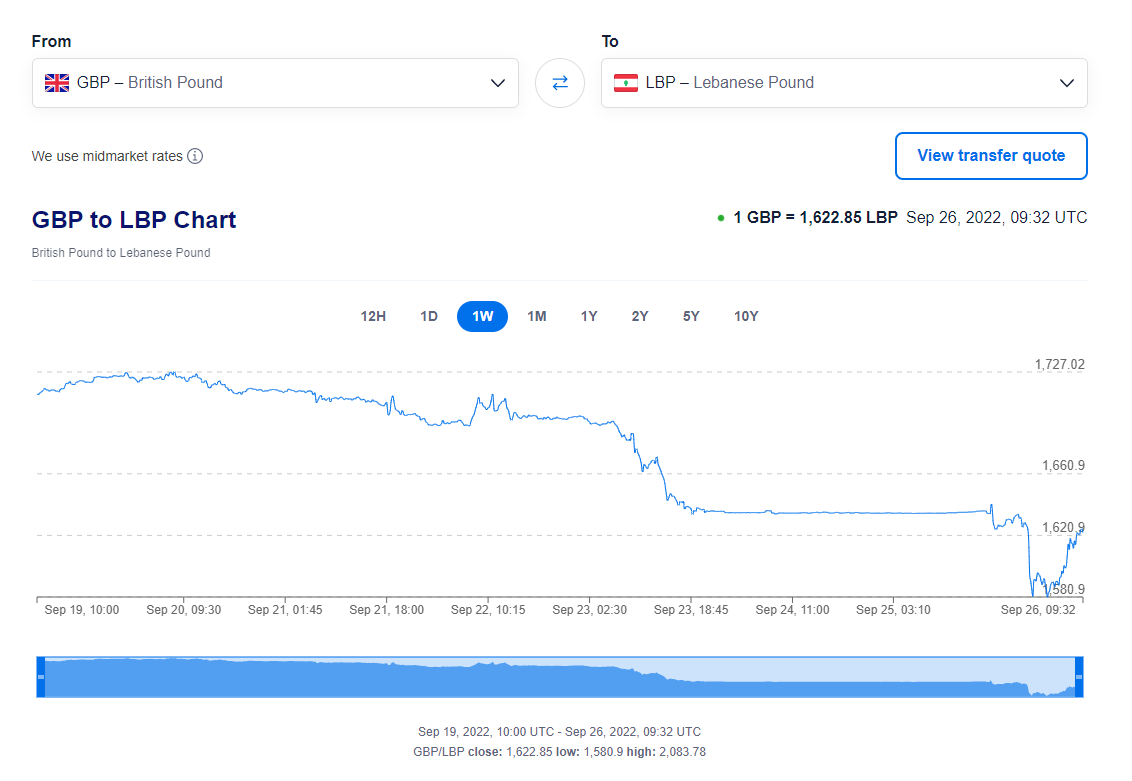
“That means the latest falls are not just about dollar strength, it’s about sterling weakness.”
Naeem Alslam, chief market analyst at AvaTrade, explained the pound’s fall, saying: “The main reason behind the current fall in sterling is traders losing their confidence in the UK’s ability to pay its debt as the debt to GDP ratio continues to increase.”







